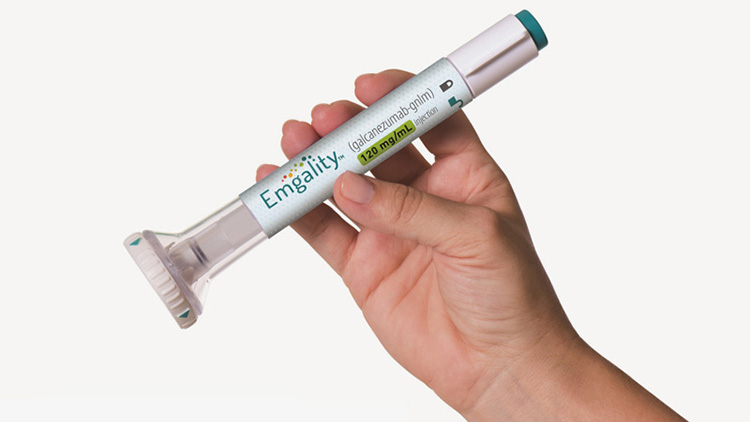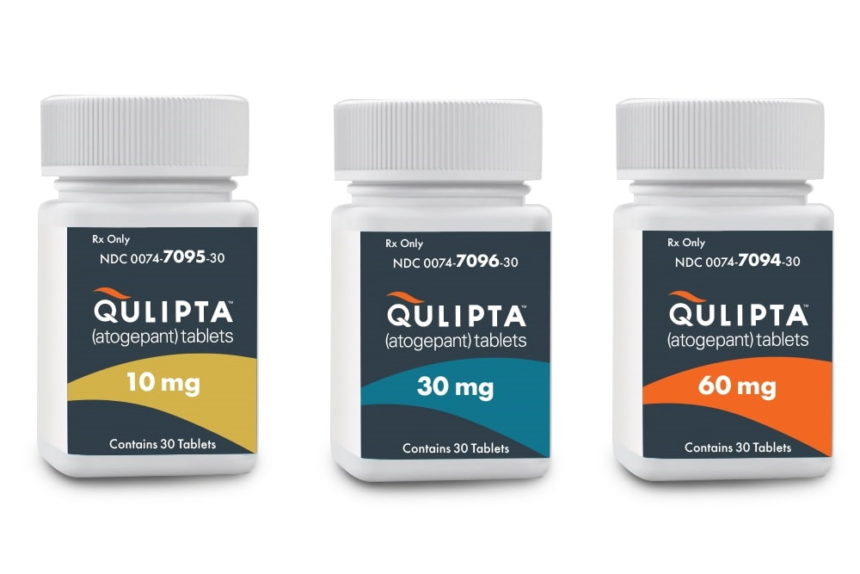Emgality (galcanezumab) vs Qulipta (atogepant)
Emgality (galcanezumab) vs Qulipta (atogepant)
Emgality (galcanezumab) and Qulipta (atogepant) are both preventive medications for migraine, but they differ in their mechanism of action and administration. Emgality is a once-monthly, subcutaneous injection that works by blocking the activity of CGRP, a molecule involved in migraine attacks, while Qulipta is an oral medication taken daily that also targets the CGRP pathway but as a small molecule CGRP receptor antagonist. When deciding between the two, patients should consider factors such as their preference for an injectable versus oral medication, the frequency of dosing, and their individual response and tolerance to the treatments, in consultation with their healthcare provider.
Difference between Emgality and Qulipta
| Metric | Emgality (galcanezumab) | Qulipta (atogepant) |
|---|---|---|
| Generic name | galcanezumab | atogepant |
| Indications | Preventive treatment of migraine in adults | Preventive treatment of episodic migraine in adults |
| Mechanism of action | Calcitonin gene-related peptide (CGRP) antagonist | Calcitonin gene-related peptide (CGRP) receptor antagonist |
| Brand names | Emgality | Qulipta |
| Administrative route | Subcutaneous injection | Oral |
| Side effects | Injection site reactions, constipation, muscle spasms, and more | Nausea, constipation, fatigue, and more |
| Contraindications | Hypersensitivity to galcanezumab or any of the excipients | Hypersensitivity to atogepant or any of the excipients |
| Drug class | Monoclonal antibody | Small molecule CGRP receptor antagonist |
| Manufacturer | Eli Lilly and Company | AbbVie Inc. |
Efficacy
Emgality (Galcanezumab) for Migraine Prevention
Emgality (galcanezumab) is a humanized monoclonal antibody that has been approved by the FDA for the preventive treatment of migraine in adults. It functions by targeting and blocking the activity of calcitonin gene-related peptide (CGRP), a molecule that is involved in migraine attacks. Clinical trials have demonstrated that Emgality can significantly reduce the frequency of migraine days in patients with episodic and chronic migraine. In these trials, patients treated with Emgality reported a greater reduction in monthly migraine days compared to those receiving a placebo. Furthermore, a subset of patients experienced a 50% or greater reduction in the number of migraine days per month, indicating substantial efficacy in migraine prevention.
Qulipta (Atogepant) for Migraine Prevention
Qulipta (atogepant) is another medication approved by the FDA for the preventive treatment of episodic migraine in adults. Atogepant is an orally administered CGRP receptor antagonist that also targets the CGRP pathway, similar to Emgality, but through a different mechanism. In clinical trials, atogepant has been shown to reduce the mean number of monthly migraine days compared to placebo. The efficacy of Qulipta was observed as early as the first month of treatment and sustained throughout the trial periods. Patients taking atogepant also reported improvements in quality of life and other patient-reported outcomes related to migraine.
Comparative Efficacy in Migraine Prevention
When comparing the efficacy of Emgality and Qulipta, it is important to consider that both medications act on the same biological pathway but are administered differently and have different pharmacological profiles. Emgality is administered as a monthly subcutaneous injection, while Qulipta is taken orally. Both have been shown to be effective in reducing the frequency of migraine days, but individual responses to these medications may vary. Direct comparative studies between Emgality and Qulipta have not been widely conducted, so healthcare providers often base their prescribing decisions on patient preferences, tolerability, and other individual factors.
Conclusion on the Efficacy of Emgality and Qulipta
In conclusion, both Emgality and Qulipta have been proven to be effective in the preventive treatment of migraine in adults. They offer additional options for patients who have not had success with other preventive treatments or who may be seeking a different mode of administration. As with any medication, the decision to use Emgality or Qulipta should be made in consultation with a healthcare provider, taking into account the patient's medical history, the severity of migraine, and other relevant factors. Ongoing monitoring of efficacy and side effects is important to ensure the best outcomes for patients with migraine.
Regulatory Agency Approvals
Emgality
-
European Medical Agency (EMA), European Union

-
Food and Drug Administration (FDA), USA

-
Health Canada

-
Therapeutic Goods Administration (TGA), Australia

Qulipta
-
Food and Drug Administration (FDA), USA

Access Emgality or Qulipta today
If Emgality or Qulipta are not approved or available in your country (e.g. due to supply issues), you can access them via Everyone.org.
How it works

Make an enquiry
Choose the medicine you want to buy, answer a couple of questions, and upload your prescription to speed things up. We’ll get back to you within 24 hours.


Make an enquiry
Choose the medicine you want to buy, answer a couple of questions, and upload your prescription to speed things up. We’ll get back to you within 24 hours.


Breeze through the paperwork
We'll guide you through the required documents for importing unapproved medicine, ensuring you have all the necessary information.


Get a personalized quote
We’ll prepare a quote for you, including medicine costs and any shipping, administrative, or import fees that may apply.


Receive your medicine
Accept the quote and we’ll handle the rest - sourcing and safely delivering your medicine.

Some text on this page has been automatically generated. Speak to your physician before you start a new treatment or medication.
Let's talk
If you have any questions, call us or send us a message through WhatsApp or email:
Contact us




